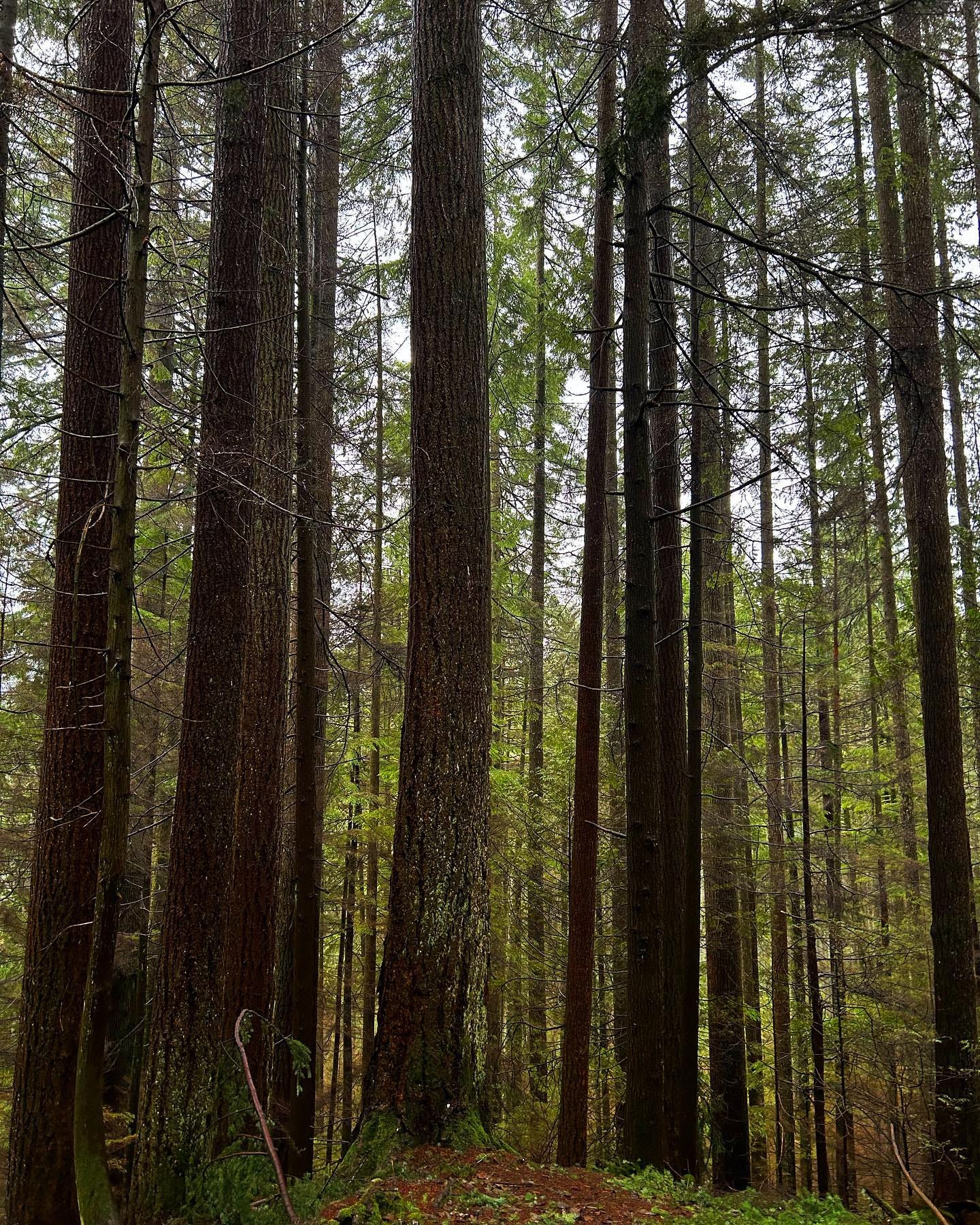I never grew up naming the trees. Even now, I might recognise the shape of something (pine, birch) but nomenclature slips away. This makes me feel like an imposter, like there are specific rules to loving nature that I keep breaking. A real nature lover would know, wouldn’t they? I live with an underlying anxiety that I will show my cards and reveal that I don’t belong in these spaces after all. That I am perpetually catching up, trying to mould myself into a conversation, an experience, that arranges itself without me in mind. All of this underscores the darker feeling, too, that maybe there’s a desire and a strategy to keep people like me out. After all, some bodies don’t have to continuously prove themselves, prove their knowledge.
I’m trying to understand both of these things: why this act of naming feels so important to get right and why I just can’t seem to match the sight of lobed leaves with a name (is it sessile oak?).
Perhaps the thread here is related to noticing and attention, which I think are gentle ways to allude to time. When I reflect on how I grew up, and what I inherited from my family, certain things are at the forefront. As a family our time was spent in a myriad of ways. My days moved forward according to prayer, reciting evening dua, flicking beads on a tasbih, getting dressed for khana. Also by other ways of gathering – familial gatherings centred around food and hours of cooking, which also prompted laughter and storytelling. Even now, when I visit my childhood homes, this is how we spend our time together, how our love manifests.
But these moments were at the fringes of long working days, of trying to make ends meet in laborious jobs with unpredictable hourly schedules. Although I grew up only a few hours from the Rocky Mountains, and even rurally in Northern Alberta for a time, I have very few memories of travelling west and seeing the mountains as a child or young adult. My peers would come back from long weekends of skiing or visiting lake houses, activities I could barely conceptualise, activities, which to me, remained a blank space. I hadn’t visited Mount Yamnuska, which appears again and again in my poetry, holding in my heart a place of sincere importance, until I was twenty.
Even as a fledging scientist, a biology major, I felt unequipped labelling diagrams during ecology labs. I worried about identifying species correctly, tripping over taxonomy and classification. I lived alongside them all my life, but as soon as I tried to give them a name, they took on a kind of slippery strangeness (or was it me that was taking on a strangeness?). Yes, I knew the name of rivers that bisected the cities I lived in, and where to find the greenest areas; but to me, these were largely geographical markers and thus lacked the graspable and defined intimacy often associate with nature. Now I understand the different modes of privilege that were at play. Now I also must spend time unlearning what I have internalised as my own deficiency, my own inability to appreciate nature the ‘right’ way. The question morphs into this: who has the time and the access to the trees, to their names?
I’m informed largely here by Jason Allen-Paisant’s work on Blackness and landscape, and I’m grateful to his articulation of how time and nature and race intersect in both his critical work and his poetry. In his poem, ‘Those Who Can Afford Time,’ which riffs on the Wordsworth poem, ‘I Wandered Lonely as a Cloud’, he beautifully writes of a poignant knowingness:
Who wanders
lonely as a cloud
with three golden retrievers?Not me no not me
I could never understand this poetrynever understand what the poem was saying
and how this could be
poetry for mewhen my English teacher drilled
the imagination of a white man’s countryI didn’t know how but somehow I knew
this wandering was not
for me
Enmeshed now in a life of writing and academia, a life of thinking and making sense of experience, I sit at my desk and contemplate the stratification of place and ancestry within these contexts. I also know that in about an hour, I will allow myself the time to go for a sunny walk up Calton Hill and eat my lunch next to the (unnamed) cluster of trees at the top. It’s exactly the middle of June, and this time of year tends to unlock me. Sitting in notebooks and word docs, I have many fragments and incomplete meditations about Calton Hill around this time of year. All these little field notes and observations waiting for me to return to them. And I know today, everything I encounter will recycle itself into new forms of thinking, into new forms of language that translate into my ever deepening understanding of the natural world.
These thoughts continuously trickle into my art. What is my place in the wide landscape of nature writing and ecopoetry? Some of these anxieties have been uprooted by the recent announcement of GATHERING, an anthology of nature writing by women of colour (edited by Durre Shahwar and Nasia Sarwar-Skuse), which houses one of my tentative essays about Scotland’s landscape. So, the push and pull of space, which entangles with the push and pull of belonging in space, is fresh in my mind.
To end, an extract from one of my newer poems-in-progress:
Next to me are the green symbols of some emotion
I can’t name and this, I realise, makes me a failed poet.




